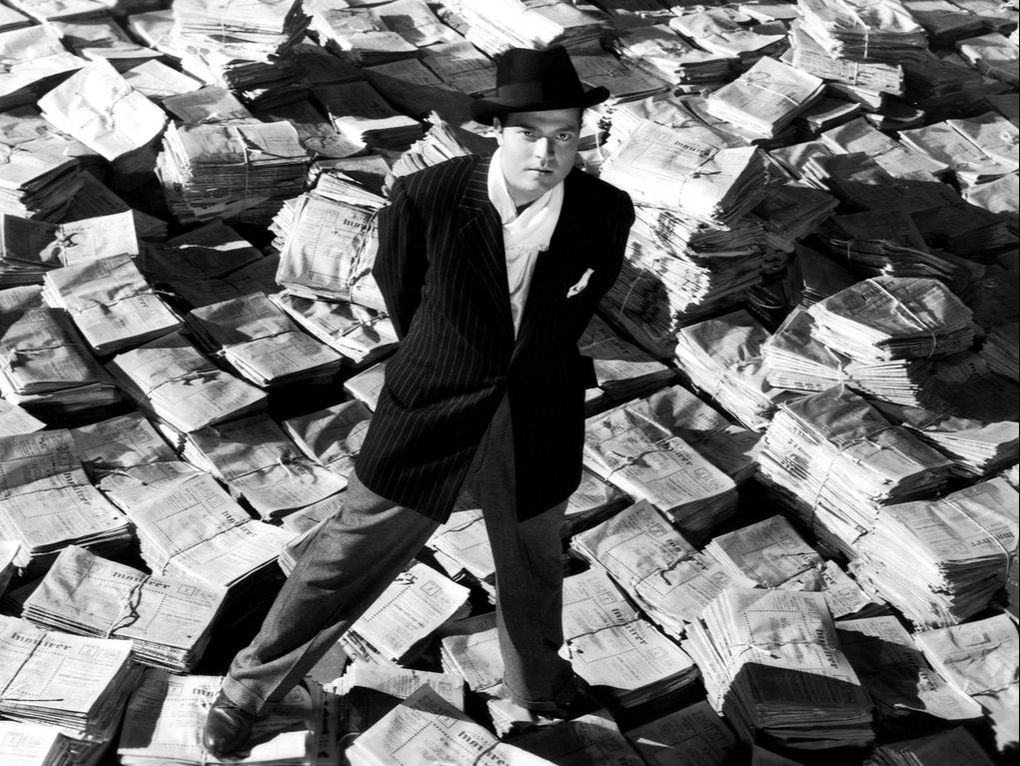|
After a wealthy newspaper tycoon dies, reporters go through every possible source to discover the meaning behind his last words.
DRAMA
|
Citizen Kane (1941)Directed by Orson Welles
Written by Herman J. Mankiewicz and Orson Welles Starring Orson Welles, Dorothy Comingore, Joseph Cotten, Ruth Warrick, George Coulouris, Everett Sloane, Agnes Moorehead Oscar Wins - Best Original Screenplay Oscar Nominations - Best Picture, Best Actor (Orson Welles), Best Director, Best Cinematography, Best Art Direction, Best Sound Recording, Best Film Editing, Best Original Score (Bernard Hermann) |
Citizen Kane is widely considered to be the greatest movie of all time, and it's very easy to see why. This film is an incredible story of the costs of wealth and power and how the richest man in the world essentially has nothing. Orson Welles proved his resilience with this film and provided us with a landmark masterpiece that will have a tough time being ousted from the top ten. He accomplished things with his camera that set the standard for how to film a movie, almost revolutionizing the industry and becoming one of the biggest power players in Hollywood. And the film still holds up.
Charles Foster Kane (Welles) is dead. The most powerful man in America, a visionary, a tycoon, a tyrant to some and a hero to others, but every bit as mysterious as someone that wealthy can be to the common man. His last word, "Rosebud," creates a media frenzy as the newspapers try to uncover the meaning behind it. Through a newspaperman's conversations with everyone who knew Kane intimately, we get to see the tumultuous life of a man who had everything but also nothing. Welles's performance is stunning, and the story is engaging. You feel for Kane at times, but you are also overwhelmed by his presence alone. He feels like a force of nature, but Welles brings him down to earth just enough. Citizen Kane may not be my personal pick for the greatest movie of all time, but I understand its significance to the overall history of cinema. It established new rules for filmmaking and broke all the old ones, not to mention brought down the wrath of the very real William Randolph Hearst. This is a film that one can use to pinpoint a moment in American film where everything changed. That makes it a masterpiece above all else. |
